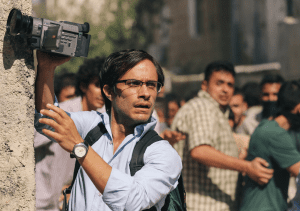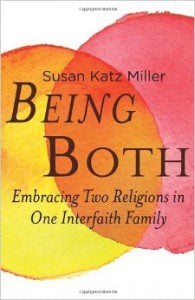 |
|
Which way Islam?
|
For better or worse, Islam has been at the forefront of domestic and international affairs for at least the past decade. It’s truly a wonder, then, that according to a recent Gallup poll a majority of Americans still have little to no knowledge of the religion’s basic tenets. More disheartening, if not outright frightening, is that even given this avowed lack of knowledge, a sizeable percentage of US citizens nonetheless maintain a negative perception of Muslims. So, either an informed, nuanced understanding of Islam is being obscured by the voluminous – and venomous – misinformation that clutters the media, or an accessible and authoritative account of what Muslims truly believe and how they interact with the world around them simply hasn’t been produced.
John Esposito, given his celebrity and scholarship, is among perhaps only a handful of individuals who have met both these prospective challenges head-on with some success. His latest offering in a line of timely scholarly works, The Future of Islam, provides a refreshingly holistic assessment of the challenges Muslims face from increased pluralism on the one hand, and heightened hostility on the other. The book is, however, not without its biases and consequent missed opportunities. Overall though, the far more genuine appraisal of Muslims in The Future of Islam is a powerful counterweight to the sensational depictions found in (sadly, more in demand) Islamophobic publications.
Deconstructing a monolith
Both novice and more advanced readers on the subject will find much of Esposito’s narrative as insightful as it is comprehensive. The first chapter of the book includes a standard primer on the five pillars, the divisions between Sunni and Shia, and some brief remarks on the more “controversial” subjects of shariah and jihad. This introductory information is supplemented, however, with a less common examination of the racial and intellectual diversity of Muslims in the West, and an even rarer assessment of the legitimate grievances Muslims around the world have with America and its allies. Through this balanced breakdown, Esposito not only debunks the perceived uniformity of Muslims and exposes the fiction of the neo-con anchor, “They hate us for our freedoms,” but manages to humanize his subject at a time when most depictions of Muslims border on caricature.
For those possessing a firmer grasp of Islamic attitudes and beliefs, this book doubles as a clear and concise distillation of the Western Muslim experience. From the factors that distinguish American Muslims from their European counterparts, to the distinction between integration and assimilation, to the misapplication of terms such as “moderate” and “fundamentalist”, Esposito’s fluid analysis on these topics, often backed by empirical data, makes even the most complex phenomena easily digestible. This lucidity and equity suffers a bit, however, when Esposito moves to a discussion of his central thesis.
An Islamic reformation?
At its core, this book is an examination of the current prospects for Muslim reformers around the globe. By reform, Esposito ostensibly is referring to the reinterpretation of Quran and hadith to produce new legal and social models that better meet the challenges of an ever more globalized world. While acknowledging the breadth of Islamic jurisprudence and of debates over theological matters, Esposito nonetheless promotes certain positions, both implicitly and explicitly, throughout his narrative. More specifically, a liberal interpretation of women’s rights, as exhibited through the likes of Amina Wadud; a more pluralistic approach to salvation, in contrast to the belief in salvific exclusivity; and the legitimacy and expansion of lay ijtihad, which undercuts the traditional role of ulema, are all featured prominently in Esposito’s discussion of reform and “a new way forward” (a phrase he borrows from President Obama’s inauguration speech).
To be fair, Esposito is careful not to dismiss more traditional or conservative positions in Islam. He clearly cautions against facile labeling of a person or group as “extreme” simply because their understanding of a particular issue doesn’t mesh with a Western, supposedly enlightened perspective. Moreover, Esposito sincerely highlights the work of more mainstream Islamic jurists and activists such as Yusuf Al-Qaradawi, Amr Khalid, and Farhat Hashmi. Where Esposito is not so balanced, however, is in his handling of “Salafism”, or its more ominous pseudo-synonym, “Wahabism.”
Salafi skepticism
It’s not uncommon, I’ve found, to come across the works of otherwise insightful and compelling writers who trip over themselves when talking about Islam. Similarly, it seems that Islamicists adept at deconstructing the generally monolithic perception of Muslims curb their sense of nuance and complexity when describing Salafism or Salafis. Esposito, whose projects are ironically quite often funded by Saudi princes, seems content with, and indeed promotes, an overly simplistic portrait of “Saudi Islam” and the sentiments it produces. An uninitiated reader could easily, upon finishing this book, be convinced of the evils of “Saudi influence” in the abstract.
Where, then, does that leave the masjids, Islamic centers, and educational institutions in America and Europe that employ Saudi-trained scholars yet are an invaluable resource in combating extremism, and advancing integration? Esposito could have easily highlighted the laudable efforts of many “Salafis” in the West who are not only educating a new generation on what it means to be Muslim, but are consciously placing this identity within a more inclusive societal framework. This small gesture could have gone a long way towards dispelling some of the lingering myths about this misunderstood segment of the Muslim community.
A pluralistic prescription
Esposito’s keen socio-political acumen and sense of historical perspective return with his concluding remarks on the future of Muslim-West relations. He once again underscores that majorities of Muslims globally don’t conflict with the West on religious or civilizational grounds, but distinguish between various nation-states based upon their policies. Esposito goes on to encourage Western powers to curtail and ultimately eliminate their support for authoritarian regimes across the Muslim World, and to reconcile with the fact that clear majorities in these countries wish to see Islam play a greater role in government.
Finally, to counteract the viral spread of Islamophobia, Esposito emphasizes that Americans and Europeans must acknowledge a missing link in what Jews and Christians have come to regard as a shared heritage. Only when Muslims are no longer viewed as the “other,” but as integral elements of a rich Judeo-Christian-Islamic history, can serious headway be made against the forces of extremism. A nice thought – but with the status quo always being the easier and more marketable route, it’s hard to see this notion transitioning into reality.
Youssef is a writer from Brooklyn, New York by way of Alexandria, Egypt. He is currently finishing up an MA in Political Science. Follow him on Twitter (@TheAlexandrian). This article was previously published at MuslimMatters and is reprinted here with permission of the author.











